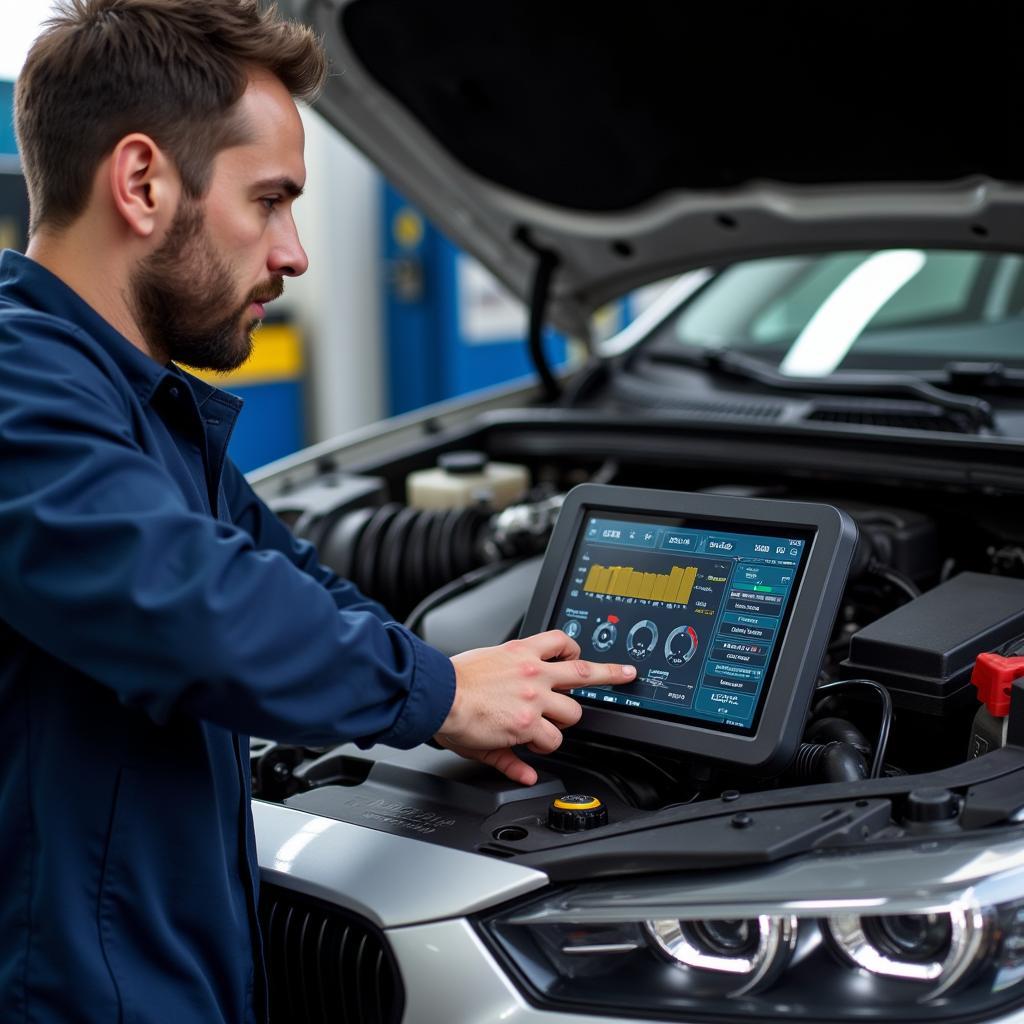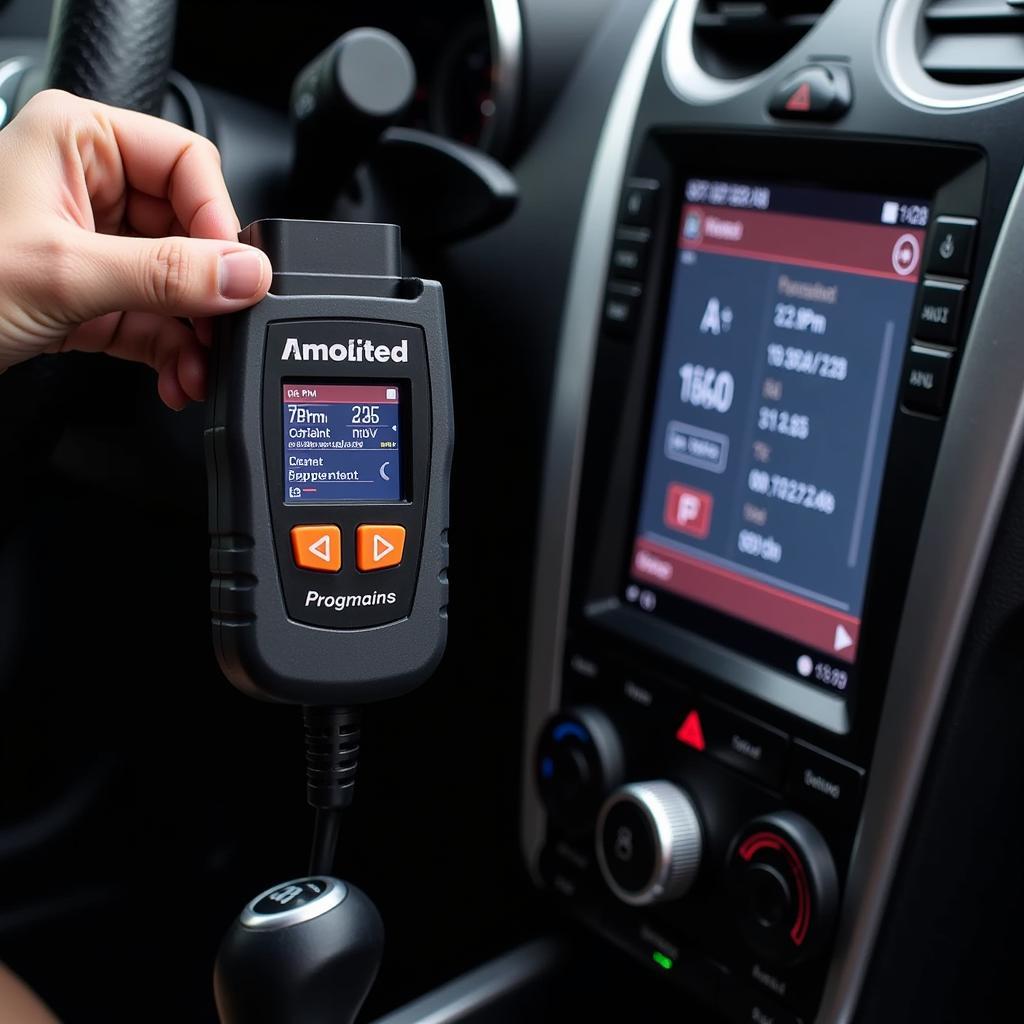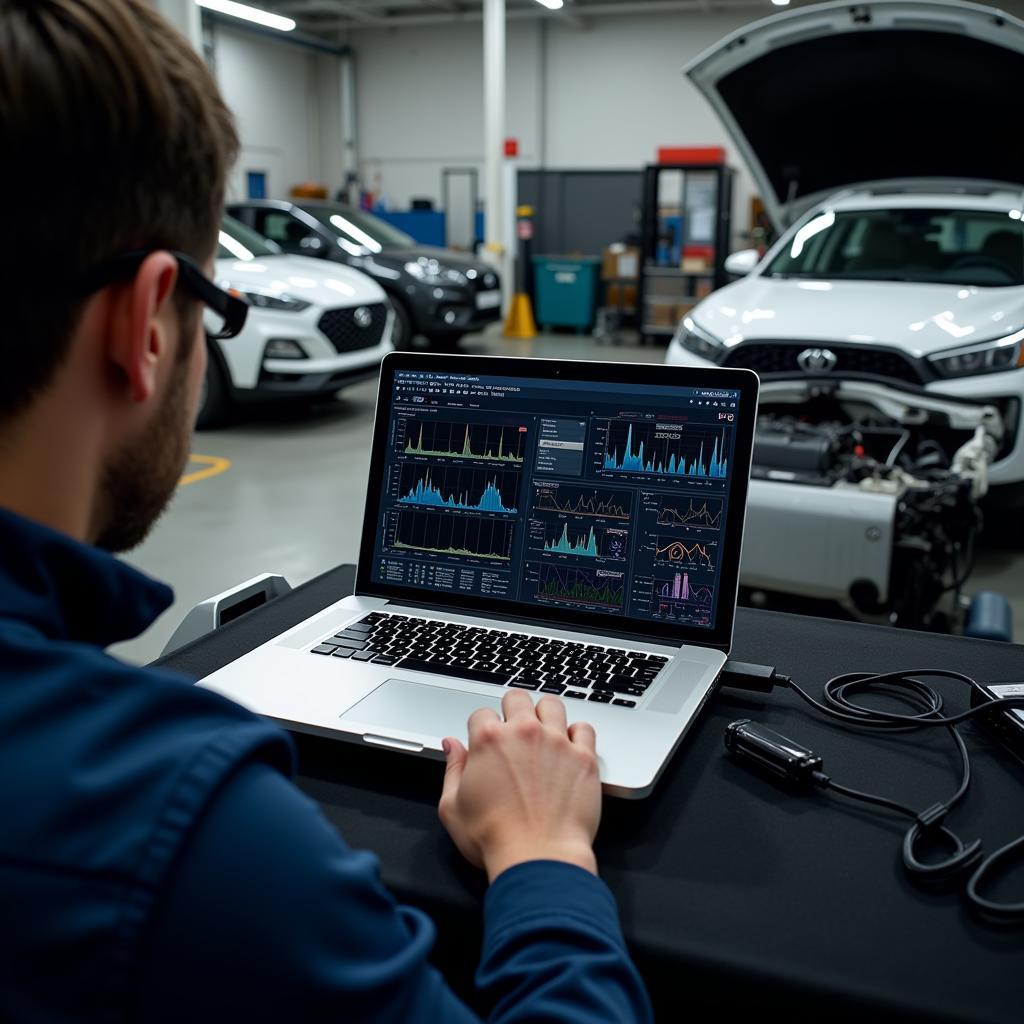Choosing the Best Diagnostic Machine For Cars can feel overwhelming with countless options available. Whether you’re a seasoned mechanic or a DIY enthusiast, having the right diagnostic tool is crucial for identifying and resolving car problems quickly and efficiently. This comprehensive guide will navigate you through the intricacies of car diagnostic machines, helping you make an informed decision.
 Best Car Diagnostic Machine for Mechanics
Best Car Diagnostic Machine for Mechanics
Understanding Car Diagnostic Machines
Before we delve into the specifics, let’s clarify what a car diagnostic machine does. Simply put, it’s a sophisticated tool that communicates with your car’s onboard computer, retrieving valuable data about its health and performance. This data is presented in the form of diagnostic trouble codes (DTCs), which are essentially standardized codes that indicate specific issues.
Think of it like this: your car speaks a technical language, and the diagnostic machine acts as a translator, converting complex codes into understandable information. This empowers you to troubleshoot problems effectively, saving time and money in the long run.
Types of Car Diagnostic Machines
Car diagnostic machines come in various shapes and sizes, catering to different needs and budgets. Let’s break down the most common types:
1. OBD2 Scanners
OBD2 scanners are the most basic and affordable type, ideal for DIYers and car enthusiasts. They plug into your car’s OBD2 port, usually located under the dashboard, and can read and clear basic engine-related DTCs.
2. Code Readers
A step up from OBD2 scanners, code readers offer more advanced features like live data streaming and the ability to read manufacturer-specific codes. They provide a broader view of your car’s systems, including transmission, ABS, and airbags.
 Professional Car Diagnostic Scanner in Use
Professional Car Diagnostic Scanner in Use
3. Professional-Grade Scan Tools
As the name suggests, these are top-of-the-line diagnostic machines used by professional mechanics and dealerships. They offer comprehensive system coverage, advanced programming capabilities, and access to manufacturer-specific information.
Choosing the Right Diagnostic Machine
With a plethora of options available, selecting the right diagnostic machine depends on your specific needs and expertise. Consider these factors:
1. Your Skill Level: Are you a beginner, DIY enthusiast, or a professional mechanic? Your skill level will dictate the complexity and features you need in a diagnostic machine.
2. Car Make and Model: If you own a specific car make, consider a diagnostic machine that specializes in that brand. These tools often provide more in-depth information and access to manufacturer-specific codes.
3. Budget: Diagnostic machines range from affordable OBD2 scanners to expensive professional-grade tools. Set a budget beforehand to narrow down your options.
4. Features: Determine the features that are most important to you. Do you need live data streaming, bi-directional control, or access to manufacturer-specific information?
Benefits of Using a Car Diagnostic Machine
Investing in a car diagnostic machine offers numerous advantages:
1. Early Problem Detection: Regular diagnostics can detect minor issues before they escalate into major problems, saving you costly repairs in the long run.
2. Accurate Diagnosis: Diagnostic machines provide precise DTCs, eliminating guesswork and enabling you to address the root cause of the problem.
3. Cost Savings: By identifying problems yourself, you can avoid unnecessary trips to the mechanic and potentially save on labor costs.
4. Improved Car Performance: Addressing issues promptly helps maintain optimal car performance, ensuring a smoother and safer driving experience.
 Mechanic Analyzing Diagnostic Data
Mechanic Analyzing Diagnostic Data
Top Features to Look for in a Diagnostic Machine
When comparing different diagnostic machines, pay attention to these essential features:
- Wide Vehicle Coverage: Ensure the machine supports a wide range of car makes and models, especially if you work on multiple vehicles.
- User-Friendly Interface: Opt for a machine with an intuitive interface and easy-to-understand menus, even if you’re a beginner.
- Live Data Streaming: This feature allows you to monitor real-time sensor data, providing valuable insights into your car’s performance.
- DTC Library: A built-in DTC library offers detailed descriptions and possible causes for specific codes, simplifying the diagnostic process.
- Bi-Directional Control: This advanced feature allows you to interact with various vehicle systems, such as turning components on and off for testing purposes.
Conclusion
Choosing the best diagnostic machine for cars is an investment that can save you time, money, and frustration in the long run. By understanding your needs, researching different types, and considering essential features, you can find the perfect diagnostic tool to empower you with the knowledge to keep your car running smoothly. Remember, a well-informed car owner is a confident car owner.
For those seeking top-notch car diagnostic tools in the UK, check out the best car diagnostic tool uk. If you’re looking for the ultimate solution, explore the best car diagnostic tool available on the market.
FAQs
1. Can I use a diagnostic machine on any car?
Most modern cars (post-1996) are equipped with the OBD2 standard, making them compatible with a wide range of diagnostic machines. However, older cars might require specialized tools.
2. What is the difference between reading and clearing codes?
Reading codes retrieves the stored DTCs from your car’s computer, while clearing codes erases them. It’s essential to address the root cause of the problem before clearing codes.
3. Are expensive diagnostic machines always better?
Not necessarily. The best diagnostic machine for you depends on your specific needs and expertise. An expensive professional-grade tool might be overkill for a DIY enthusiast.
4. Can a diagnostic machine fix car problems?
No, a diagnostic machine primarily identifies problems. However, by providing accurate diagnoses, it guides you toward the appropriate repairs.
5. How often should I use a car diagnostic machine?
It’s recommended to perform a diagnostic scan at least once a year or whenever you experience unusual car behavior.
6. Can a diagnostic machine tell me when my car needs maintenance?
Some advanced diagnostic machines can provide maintenance reminders based on mileage or driving conditions.
7. Where can I learn more about using a car diagnostic machine?
Numerous online resources, tutorials, and forums are available for those looking to expand their knowledge about car diagnostics.
Common Car Diagnostic Scenarios:
- Check Engine Light On: This is the most common reason people use car diagnostic machines. The machine can read the code(s) stored in the car’s computer and help you determine the cause of the problem.
- ABS Light On: This light indicates a problem with your anti-lock braking system. A diagnostic machine can help you pinpoint the issue, whether it’s a faulty sensor, pump, or control module.
- Airbag Light On: This light suggests a problem with your airbag system. A diagnostic machine can help you determine if the issue is with a sensor, module, or wiring.
- Transmission Problems: If you’re experiencing slipping, rough shifting, or other transmission-related issues, a diagnostic machine can read the transmission control module’s codes and help you diagnose the problem.
- Performance Issues: If your car is lacking power, experiencing reduced fuel efficiency, or running rough, a diagnostic machine can help you identify potential issues with the engine, sensors, or other components.
Need More Help?
Do you have more questions or need assistance with your car diagnostics? Our team of experts is here to help! Contact us via WhatsApp at +1(641)206-8880 or email us at [email protected]. We offer 24/7 customer support to ensure you get the help you need, when you need it.
For further reading on car diagnostic tools and techniques, check out our other helpful articles on DiagFixPro.com. We cover a wide range of topics to help you become a more informed car owner.

Leave a Reply